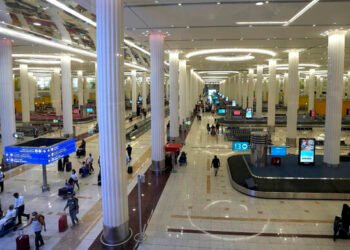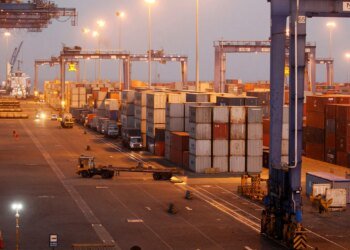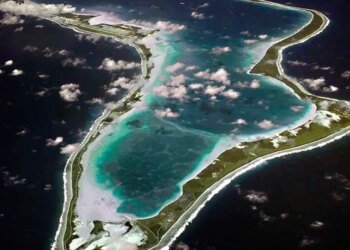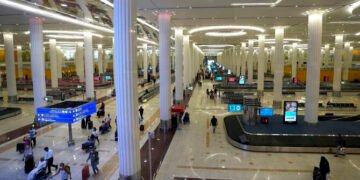Any escalation in the conflict would be disastrous for the country already burdened with political and economic chaos, analysts say
Live updates: Follow the latest on Israel-Gaza
The cost of damages to the Lebanese economy due to the Israel-Gaza war, which has spilt over into southern parts of Lebanon, is soaring and an escalation in conflict would be “disastrous”, analysts say.
Fighters of the militant group Hezbollah have exchanged fire with Israeli forces along Lebanon’s border with Israel almost daily since the Gaza war erupted on October 7.
Hezbollah leader Hassan Nasrallah also warned on Tuesday that there would be no peace on the Israel-Lebanon border without a ceasefire in Gaza.
Nasser Saidi, a former economy minister and deputy governor of Lebanon’s central bank, told media that the violence has caused extensive damage to buildings, infrastructure and private property, adding up to huge losses for Lebanon’s already struggling economy,
More than 65,000 people have been displaced in Lebanon because of the war.
Trade, tourism, hospitality as well as agriculture and aviation are some of the sectors that have been hit hard.
“The direct attacks in the south of Lebanon heighten uncertainty, inflict damage and destruction to an already impoverished region of the country and inevitably augment the country’s burdens,” Mr Saidi, who is also head of consultancy Nasser Saidi and Associates, said.
“Already, Lebanon’s four main economic pillars, trade and tourism, health, education, banking and finance have been decimated by the ongoing crisis and lack of reforms. Not to mention the long-term scarring effects from the mass migration of Lebanon’s human capital which will accelerate if there is an escalation or war in Lebanon.”
Last week, an Israeli air strike hit a car in the southern Lebanon city of Nabatieh, marking the first time the regional centre has been hit since the Gaza war erupted.
“The tensions on the border and the fears of the conflict spreading have made the already bad situation worse and will remain a major headwind to any significant improvement in the economy,” Maya Senussi, lead economist for Middle East at Oxford Economics, said.
The country’s economy is estimated to have suffered damages worth $1.5 billion due to the war, according to local media reports.
The agriculture sector has been particularly affected by the fighting.
“South Lebanon and Nabatieh are major agricultural hubs accounting for 21.5 per cent of Lebanon’s cultivated areas and damage to the sector will result in loss of the means of livelihood and income,” Mr Saidi said.
Last year, farmers in south Lebanon told media that their crops had been contaminated with white phosphorus after Israel used the highly toxic and flammable substance during its cross-border clashes with Hezbollah and other allies of Hamas.
Meanwhile, the banking sector is facing more than $70 billion in losses and the currency has lost more than 90 per cent of its value since 2019 when Lebanon defaulted on its debt for the first time in its history.
The country is grappling with what the World Bank has called one of the worst global financial crises since the middle of the 19th century.
It has yet to enforce critical structural and financial reforms required to unlock $3 billion of assistance from the International Monetary Fund, as well as billions in aid from other international donors, due to a lack of consensus among the political ruling class.








 United Arab Emirates Dirham Exchange Rate
United Arab Emirates Dirham Exchange Rate
